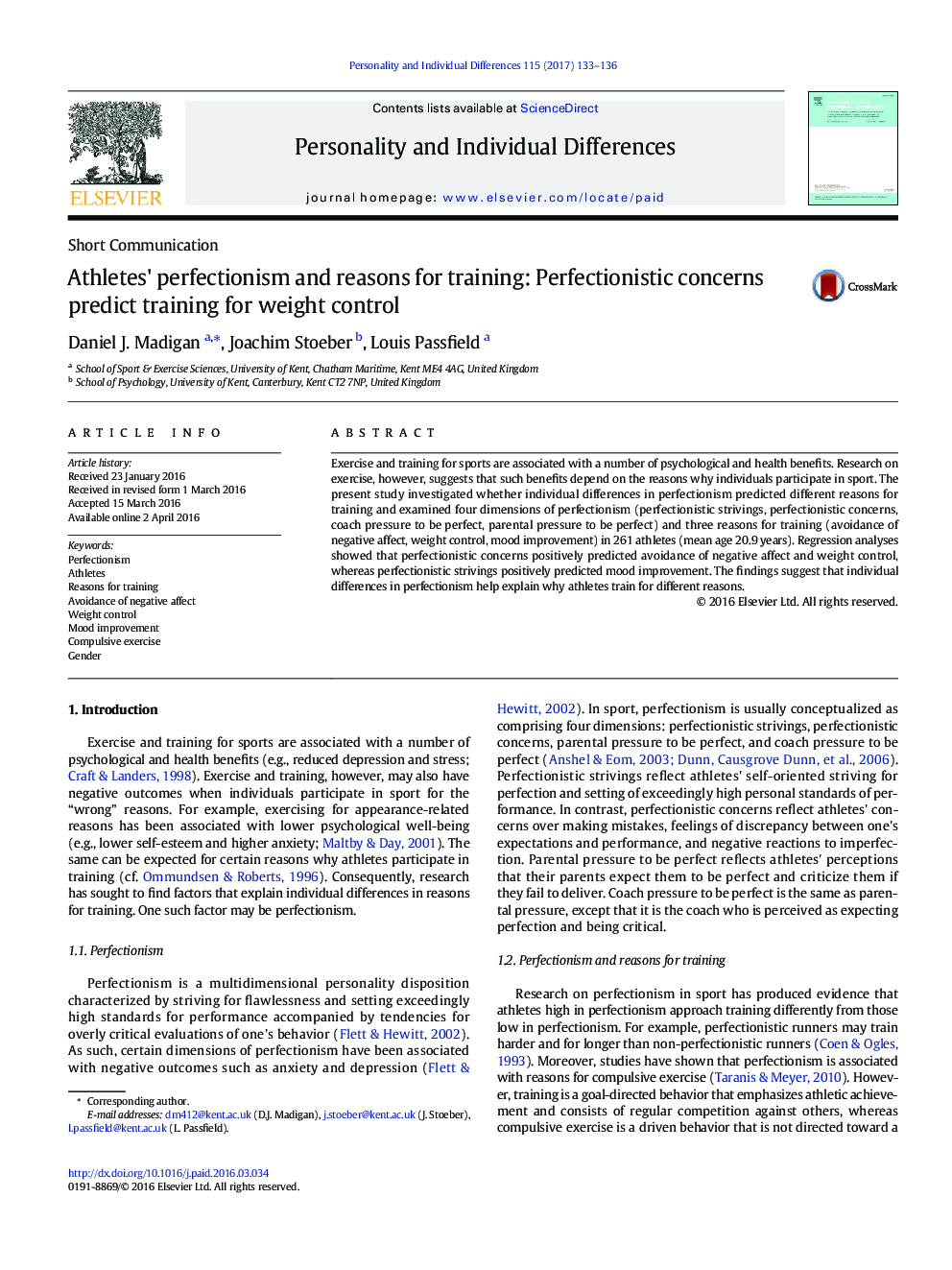| Article ID | Journal | Published Year | Pages | File Type |
|---|---|---|---|---|
| 5035854 | Personality and Individual Differences | 2017 | 4 Pages |
â¢Does athletes' perfectionism predict their reasons for training?â¢Data from 261 athletes were analyzed.â¢We differentiated perfectionistic strivings (PS) and perfectionistic concerns (PC).â¢PS predicted training for mood improvement.â¢PC predicted training for avoidance of negative affect and for weight control.
Exercise and training for sports are associated with a number of psychological and health benefits. Research on exercise, however, suggests that such benefits depend on the reasons why individuals participate in sport. The present study investigated whether individual differences in perfectionism predicted different reasons for training and examined four dimensions of perfectionism (perfectionistic strivings, perfectionistic concerns, coach pressure to be perfect, parental pressure to be perfect) and three reasons for training (avoidance of negative affect, weight control, mood improvement) in 261 athletes (mean age 20.9Â years). Regression analyses showed that perfectionistic concerns positively predicted avoidance of negative affect and weight control, whereas perfectionistic strivings positively predicted mood improvement. The findings suggest that individual differences in perfectionism help explain why athletes train for different reasons.
